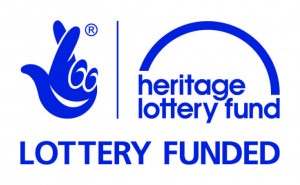‘The Children’s Poly-Olbion’
New Heritage Lottery Fund Grant for Department of English
The University of Exeter is delighted to announce the award of a Heritage Lottery Fund (HLF) grant of £80,000, for a project titled ‘The Children’s Poly-Olbion: Celebrating the Literary and Cartographic Heritage of Michael Drayton’s Poly-Olbion (1612; 1622)’. The project, which is led by Professor Andrew McRae, in partnership with Anne Louise Avery, of Flash of Splendour Arts, centres on Michael Drayton’s 15,000-line Jacobean poem of national description, which was published with prose annotations by John Selden and decorative maps by William Hole.
The grant will enable a range of exciting work to be pursued by the University of Exeter in association with Flash of Splendour Arts, an educational creative arts organization, and the Royal Geographical Society. The project will:
- deliver a series of innovative workshops for children, particularly with Special Educational Needs, mainly in the South West region;
- create a ‘Children’s Poly-Olbion’ of county maps, inspired by Hole’s fantastical cartographic engravings and based on collaborations between children and professional artists;
- stage an exhibition at the Royal Geographical Society (and moving subsequently to the University of Exeter), in autumn 2015;
- produce a website aiming to capture the methods and achievements of the workshops, bringing this remarkable text alive for future teaching and general reading purposes;
- and present a series of public events, largely centred upon the 2015 exhibition.
‘The Children’s Poly-Olbion’ will run concurrently with ‘The Poly-Olbion Project’, funded by the Arts and Humanities Research Council. ‘The Poly-Olbion Project’, which is predominantly academic in nature, leading to the publication of a new scholarly edition of Poly-Olbion, is based at Exeter, managed by Professor McRae and Professor Philip Schwyzer. Though the two projects are distinct in their methods and goals, it is anticipated that synergies will be created between them, exploring in the process the relation between scholarly work and innovative forms of community engagement. The university is proud to be leading the way in this field, and grateful to HLF for supporting their vision.
The total value of funding for the project, including HLF’s grant and contributions in-kind, largely committed by the University, is £166,911.
Professor McRae said: ‘This is a fresh and exciting development for me and my colleagues. The idea that this quirky seventeenth-century text that I have loved for decades may be used in such direct and innovative ways, to change the lives of children with special educational needs, is extraordinary. The project is already giving me a fresh perspective on the value of literature in the community.’
Co-project director, curator Anne Louise Avery, from Flash of Splendour Arts, emphasised the innovative nature of the Children’s Poly-Olbion: ‘It will make an incalculable difference to the lives of the many children involved, the majority of whom will never have encountered this kind of literary heritage before. The project will provide a new model for delivering marginalised children’s outreach education, helping to shape future initiatives across the UK. It will demonstrate how obstacles to heritage material often perceived as too “difficult” for disabled children, can be removed through innovative partnerships, thoughtful, cross-discipline thinking and imaginative practice.
Influencing figures as diverse as Wordsworth and John Lennon, Drayton’s poem represents a vast repository of English and Welsh history, geography, myth and social commentary, describing, in Drayton’s words, “all the tracts, rivers, mountains, forests, and other parts of this renowned isle of Great Britain, with intermixture of the most remarkeable stories, antiquities, wonders, rarities, pleasures, and commodities of the same.” Its title, Poly-Olbion, translating as “Multiple Albion”, invokes this grand canvas and echoes our own ethos of inclusivity: a united, plural Britain in which, as Drayton’s contemporary, the poet Alexander Gardyne wrote, various nations might “All-be-one”.’
Commenting on the grant award, HLF’s Head of South West, Nerys Watts, said: ‘Drayton’s Poly-Olbion provides a rich picture not only of the landscapes of Jacobean England and Wales, but of the wealth of myths, legends and folk tales that inspired and fascinated its people. This project will enable today’s young people to use the original text as a starting point for exploring their own contemporary world, enabling them to gain a wonderful insight into the ways in which the UK’s diverse heritage has shaped the way we live today.’
Notes to Editors
About The University of Exeter
The University of Exeter is consistently ranked in the UK top 10. The Department of English is one of the strongest departments in the University, ranked first for four-star research in the 2008 Research Assessment Exercise, and also highly ranked by its students in the annual National Student Survey. It is the base for a number of ongoing research projects in the area of early modern English literature and culture, including ‘The Poly-Olbion Project’ and ‘The Stuart Successions Project’.
About Flash of Splendour Arts
Flash of Splendour Arts provides innovative arts education for children and young adults, from birth to 25. We work with the creative arts to empower and inspire, typically enabling access to ideas, history, art and literature that would often be considered too difficult or dry for younger audiences. Inclusivity is key to our practice and we are leading experts in working with youth demographics that are often excluded from or under stimulated within the arts, with a particular focus on children with SEND and ALN. Previous partners have included Oxford University, Barefoot Books and the Prime Minister, David Cameron.
About the Heritage Lottery Fund
Using money raised through the National Lottery, the Heritage Lottery Fund (HLF) aims to make a lasting difference for heritage, people and communities across the UK and help build a resilient heritage economy. From museums, parks and historic places to archaeology, natural environment and cultural traditions, we invest in every part of our diverse heritage. HLF has supported over 35,000 projects with more than £5.6bn across the UK. www.hlf.org.uk
For further information:
Andrew McRae, University of Exeter
01392 724258; a.mcrae@exeter.ac.uk
Anne Avery, Flash of Splendour Arts
07554118832; info@flashofsplendourarts.com

